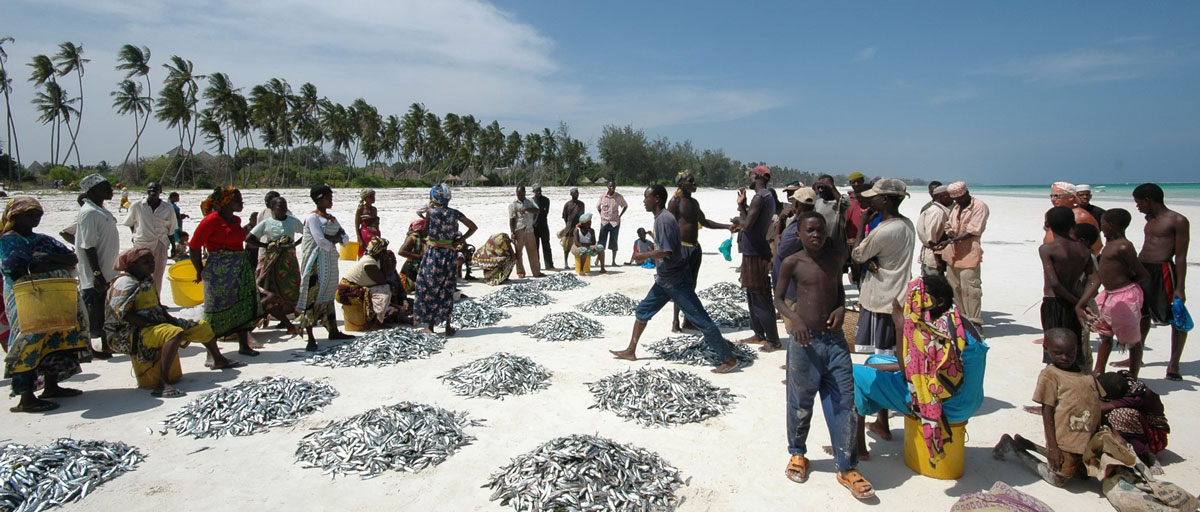
Centre researcher Tim Daw introduces a new project which aims to alleviate poverty and improving sustainable resource use in the poor coastal communities of Mozambique and Kenya. Front cover photo: O. Henriksson/Azote
Ecosystem services and human wellbeing
Supporting poor communities in Mozambique and Kenya
Centre to co-host new project on ecosystems and human wellbeing
A new project led jointly by the Stockholm Resilience Centre and the University of Exeter funded by Ecosystem Services for Poverty Alleviation (ESPA a joint programme of the Natural Environment Research Council, the Economic and Social Research Council and the UK Department for International Development) starts in 2013.
The project, entitled Sustainable Poverty Alleviation form Coastal Ecosystem Services (SPACES), will investigate the relationships between ecosystems and human wellbeing with the goal of alleviating poverty and improving sustainable resource use in the poor coastal communities of Mozambique and Kenya.
Benefiting the poorest
The project will provide new insights into how ecosystems provide benefits for poor people and will involve communities in participatory processes such as scenarios exercises to identify more sustainable and equitable management strategies and key leverage points for policy.
For example it will investigate how valuable conserving ecosystem services, such as reef fisheries and carbon sequestration by coastal mangroves can have positive impacts on poorest members of communities, such as women fish traders or landless farmers.
A thorough understanding of how changes to ecosystems impact communities will be crucial in developing effective methods to reduce poverty and provide enhanced social and cultural benefits.
Direct impact
Alongside thirty international partners from Kenya, Mozambique, the UK and Canada researchers from Exeter will work collaboratively on this three year study which aims to have an enduring impact in the research locations and to inform policy through engagement with government, NGOs and donor agencies.
"There is an assumed link between ecosystem services and poverty alleviation, but what we know from previous research is that the actual impact of ecosystems on people's lives varies depending on their needs and their ability to access the benefits. This project will allow us to really explore that link for a number of ecosystem services in a range of settings," says centre researcher Tim Daw who will lead the project.
Professor Katrina Brown, from the University of Exeter's Environment and Sustainability Institute said:
"We aim for direct impact on the wellbeing of the poor inhabitants of the rapidly transforming coastal areas in Mozambique and Kenya. We also aim to provide indirect impact to coastal poor in other developing countries through our international impact strategy."
Text






